Senators study vitality of francophone community of Winnipeg
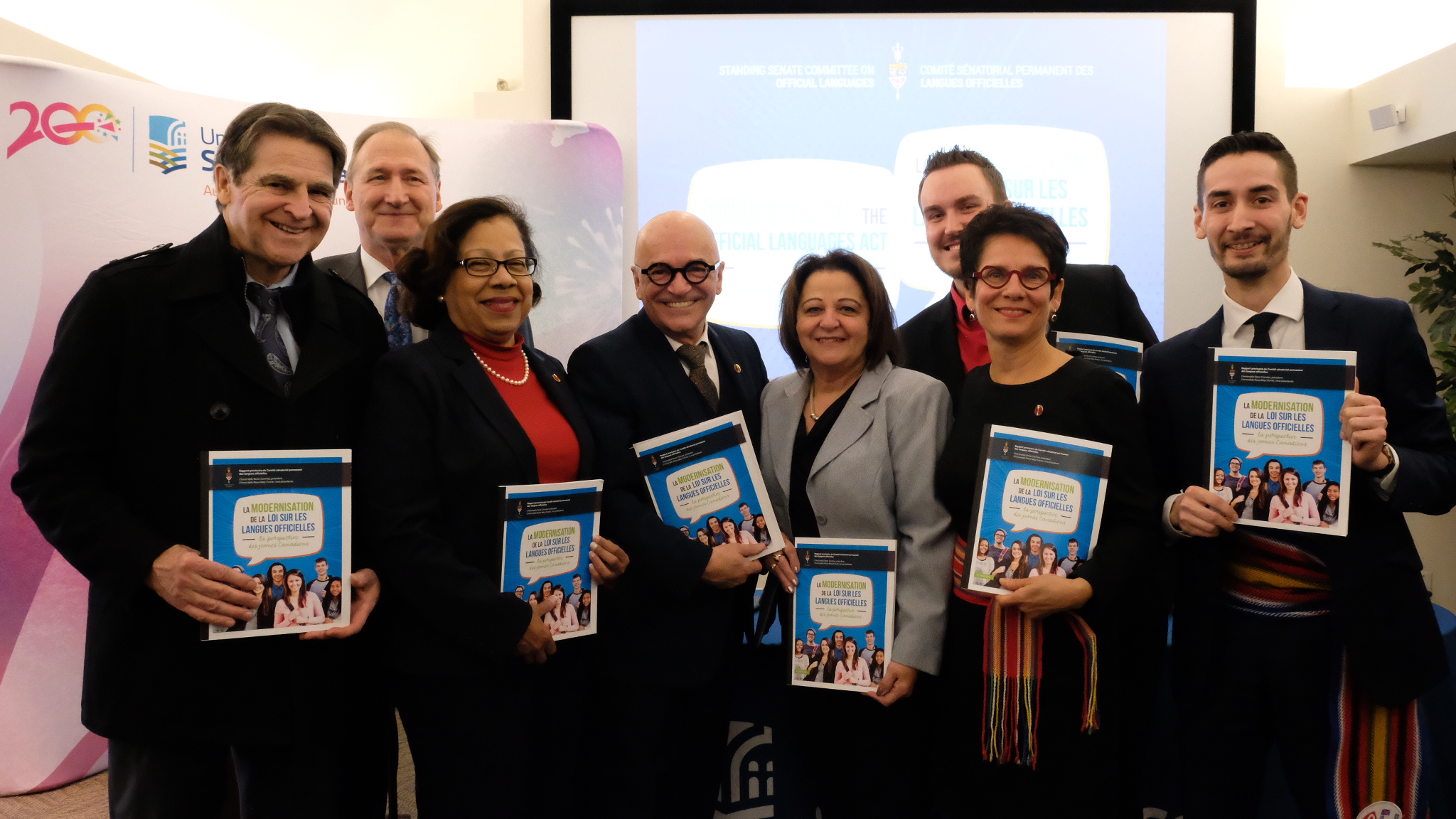
WINNIPEG — With a hearty “Hé ho!” — the customary cheer of Winnipeg’s Festival du Voyageur — a group of senators immersed themselves in Manitoba’s vibrant francophone culture.
French has flourished here since fur traders introduced it in the 1700s, but bilingualism and linguistic duality need help if they are to continue to thrive across Canada, members of the Senate Committee on Official Languages said during a three-day fact-finding mission in Winnipeg. They are in the second phase of a study on modernizing the Official Languages Act, which focuses on official language minority communities.
The Official Languages Act, which is intended in part to advance the equality of status and use of English and French in Canada, needs to stay relevant to Canadians — especially to youth, who have high expectations for linguistic duality and bilingualism, the committee said in a report released Friday, February 16, 2018, at the Université de Saint-Boniface.
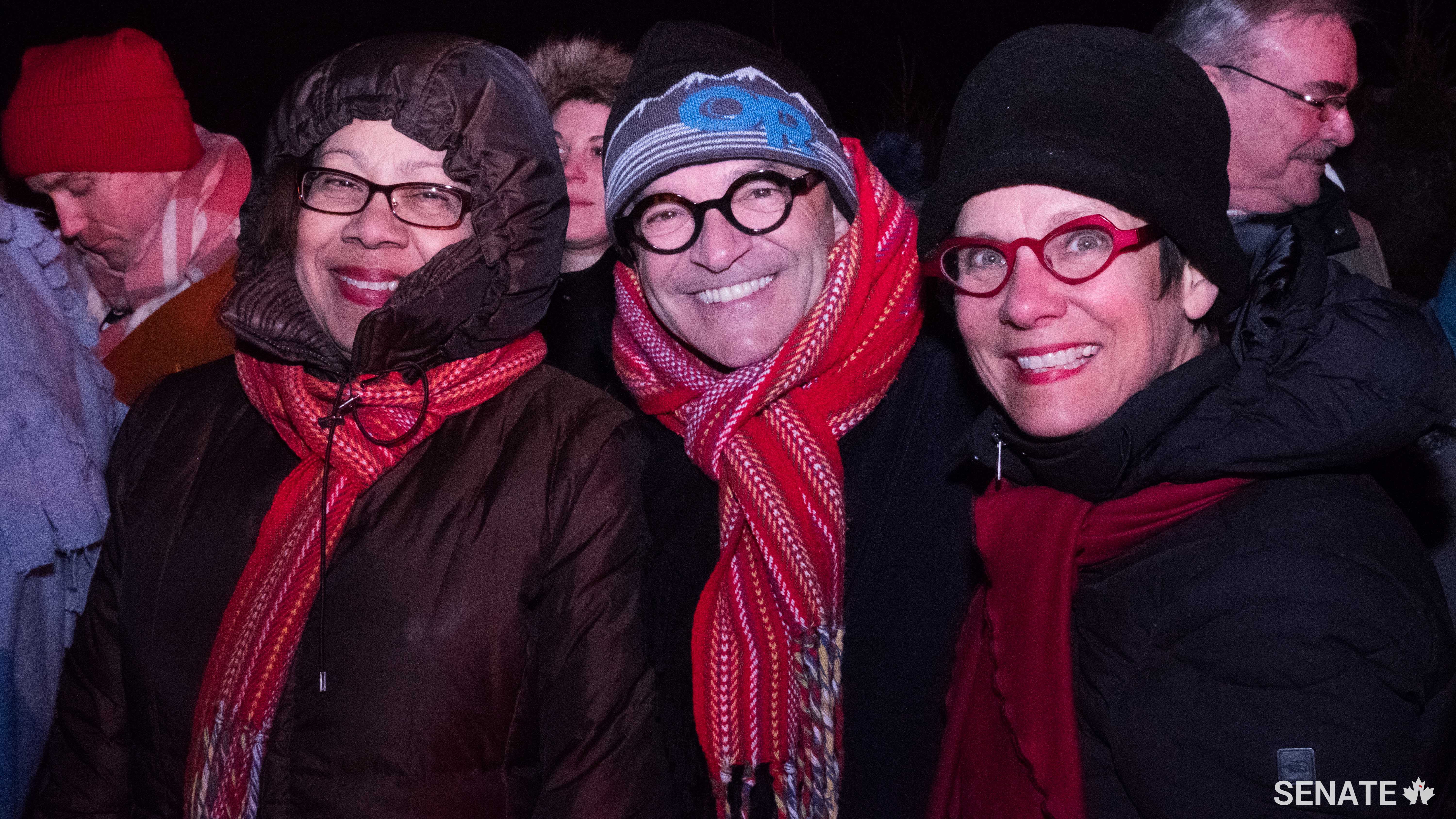
“After all, the future of linguistic duality is in their hands — and they are best placed to tell us what they need to realize their vision,” committee chair Senator René Cormier said.
Modernizing the Official Languages Act: The Views of Young Canadians is the first of six reports the committee will prepare as part of its study on the future of the Act, which turns 50 years old in 2019.
Its goal is to make people “fall in love” with the ideas, expressions and cultures of English and French, Senator Cormier said.
Members of the Fédération de la jeunesse canadienne-française echoed senators’ calls for the government to enhance the use of both languages in Canadians’ daily lives.
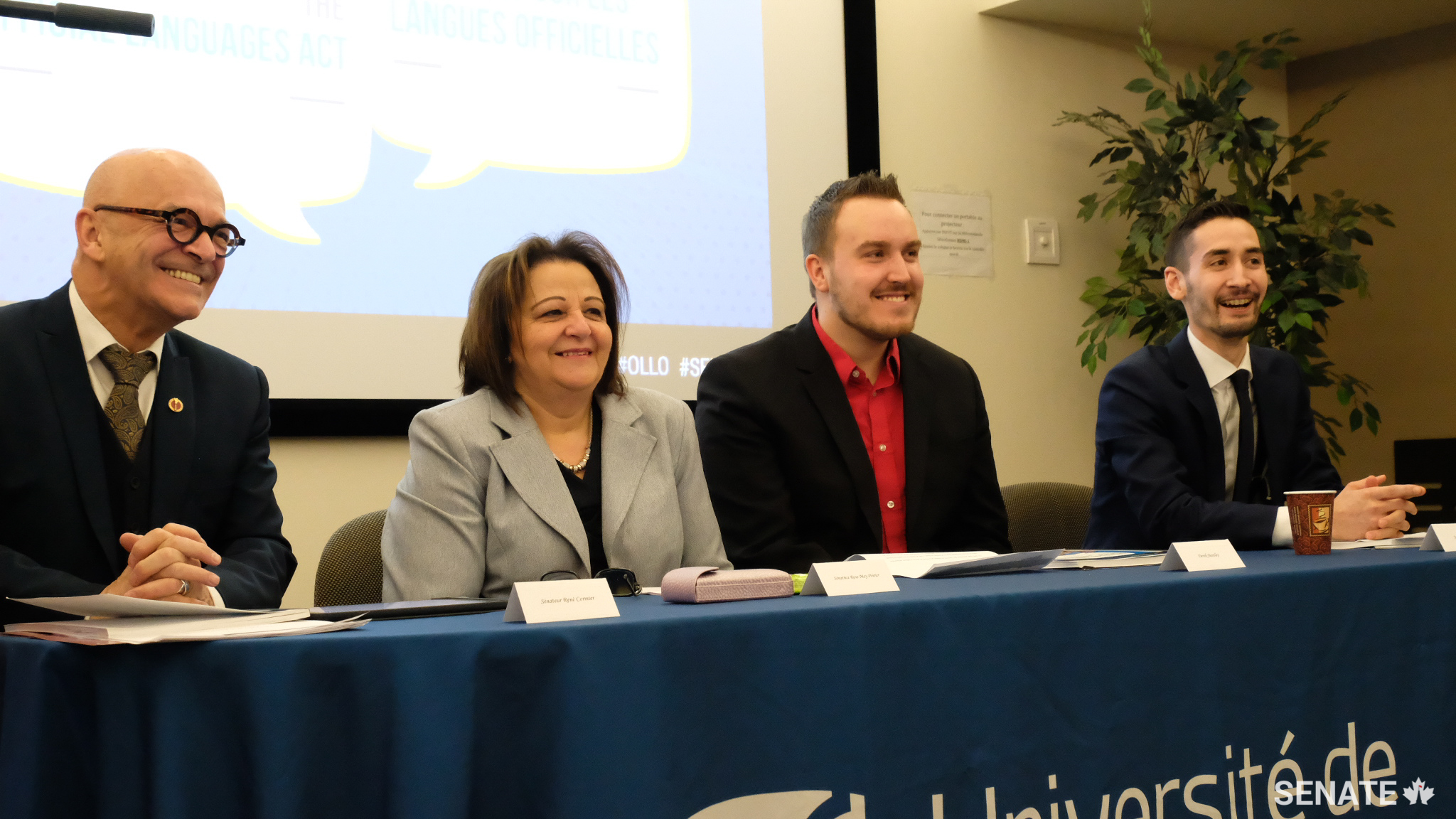
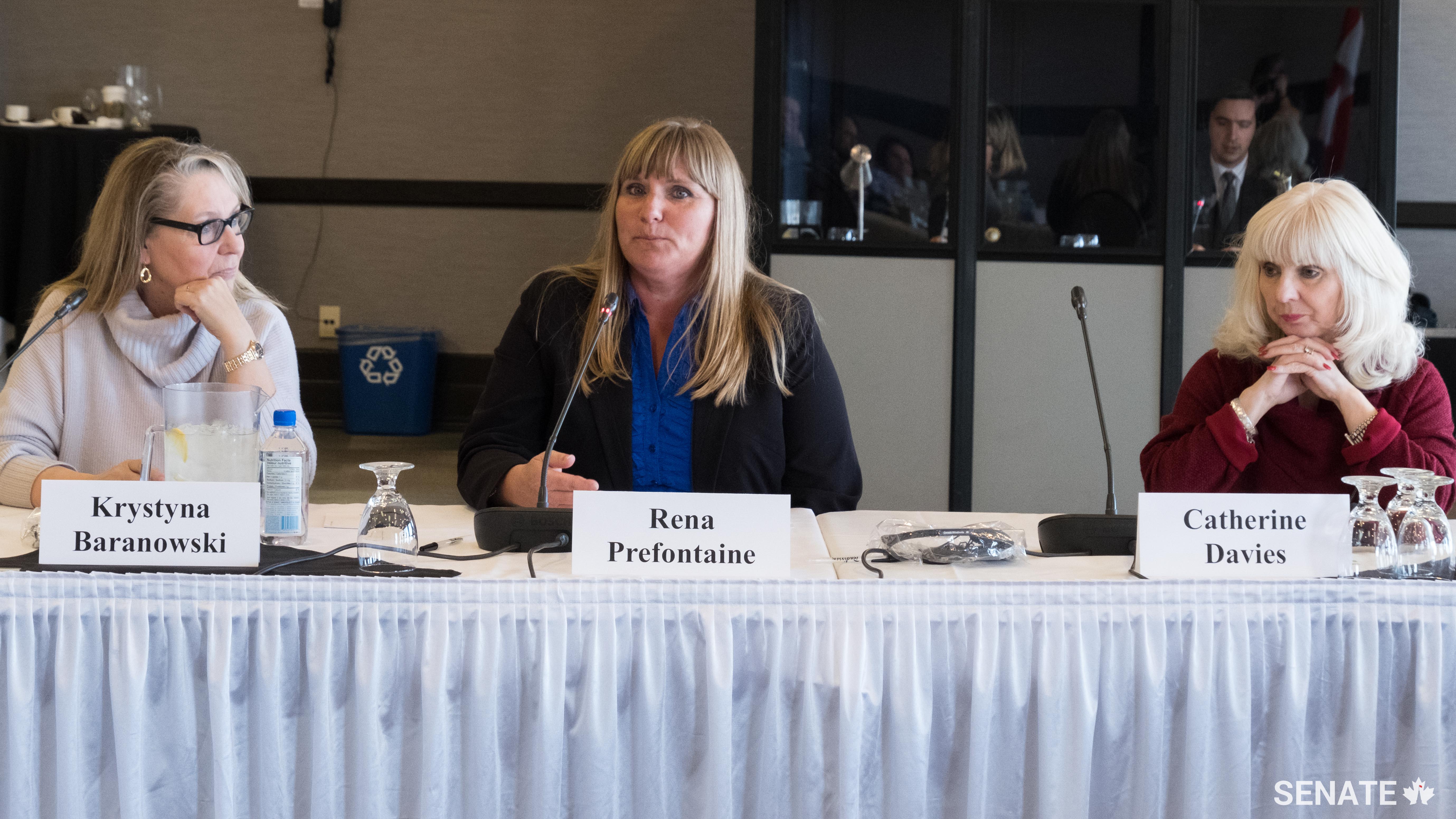
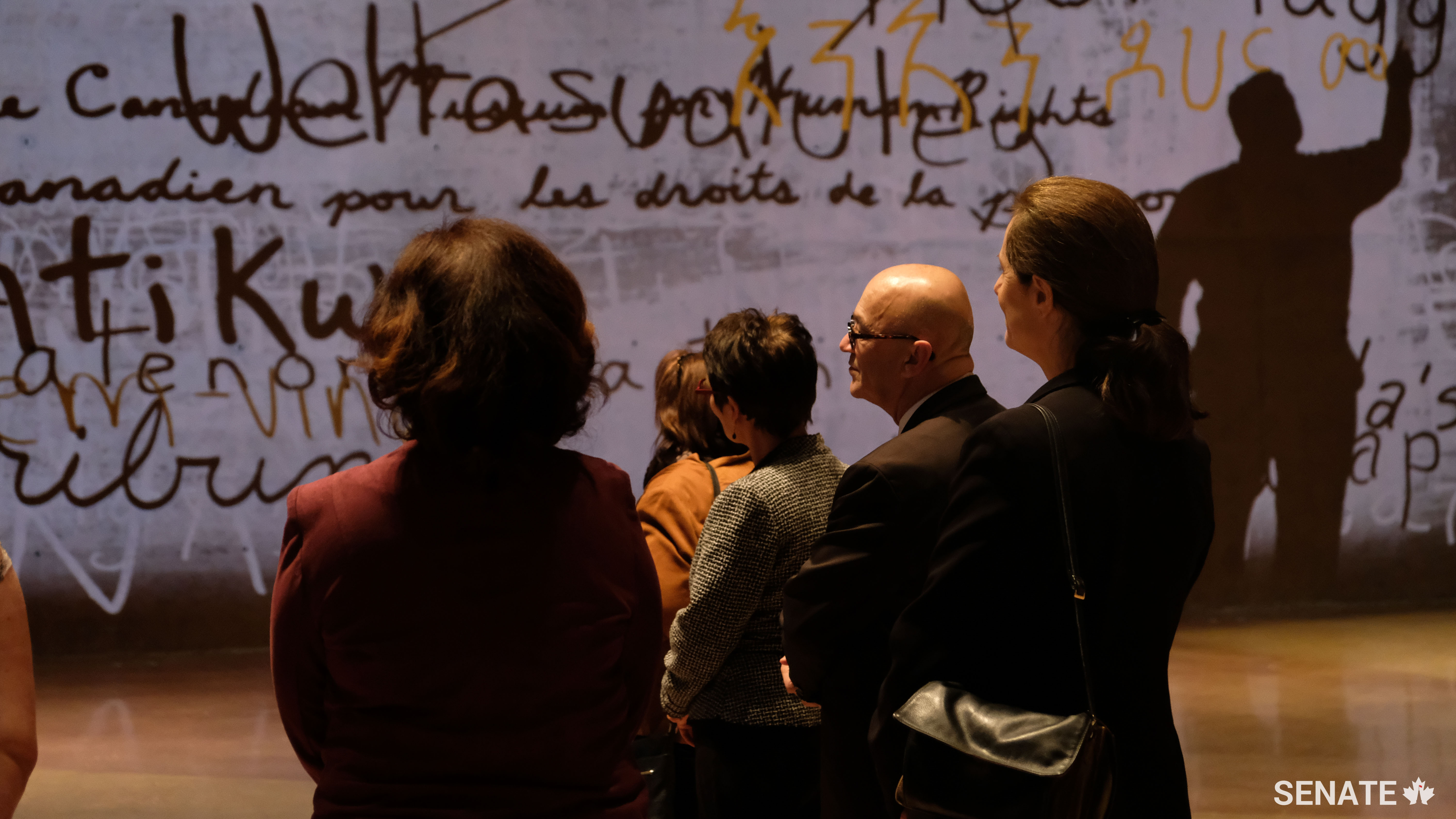
“Modernizing the Official Languages Act is an important tool that will help us preserve the French language and our culture,” said Derrek Bentley, a Manitoba representative on the organization’s board.
Federation president Justin Johnson said he was delighted by the prospect of updating the Act.
“Young people are calling for a Canadian francophonie where a person’s identity leads not to opposition and exclusion, but to openness and diversity,” Mr. Johnson said.
The last time the Official Languages Act was overhauled was in 1988 — nearly 30 years ago — when Canadians listened to music on a Walkman, made calls on rotary phones and watched movies on VHS tapes, committee deputy chair Senator Rose-May Poirier said.
“So many things have changed since then. The modernization of the Act has obviously been long overdue,” she said.
While in Winnipeg, senators held public hearings where representatives of Franco-Manitoban arts, immigration, health, economic development, education and Métis organizations described the challenges they face, surrounded by English speakers.
Senators also visited cultural organizations that help the francophone community thrive, including the Centre culturel franco-manitobain, which houses under one roof a variety of francophone organizations, the Théâtre Cercle Molière, which stages francophone theatrical productions, and the Canadian Museum for Human Rights, where part of its exhibit is dedicated to the survival of linguistic minorities. They also visited the Bilingual Service Centre in St. Boniface, which offers services in French and English for three levels of government: municipal, provincial and federal.
The committee ended its fact-finding mission at the Festival du Voyageur, Winnipeg’s annual winter festival that celebrates the province’s fur-trading roots and shines a light on the vitality of its francophonie.
Related articles
Tags
Committee news
Senators study vitality of francophone community of Winnipeg

WINNIPEG — With a hearty “Hé ho!” — the customary cheer of Winnipeg’s Festival du Voyageur — a group of senators immersed themselves in Manitoba’s vibrant francophone culture.
French has flourished here since fur traders introduced it in the 1700s, but bilingualism and linguistic duality need help if they are to continue to thrive across Canada, members of the Senate Committee on Official Languages said during a three-day fact-finding mission in Winnipeg. They are in the second phase of a study on modernizing the Official Languages Act, which focuses on official language minority communities.
The Official Languages Act, which is intended in part to advance the equality of status and use of English and French in Canada, needs to stay relevant to Canadians — especially to youth, who have high expectations for linguistic duality and bilingualism, the committee said in a report released Friday, February 16, 2018, at the Université de Saint-Boniface.

“After all, the future of linguistic duality is in their hands — and they are best placed to tell us what they need to realize their vision,” committee chair Senator René Cormier said.
Modernizing the Official Languages Act: The Views of Young Canadians is the first of six reports the committee will prepare as part of its study on the future of the Act, which turns 50 years old in 2019.
Its goal is to make people “fall in love” with the ideas, expressions and cultures of English and French, Senator Cormier said.
Members of the Fédération de la jeunesse canadienne-française echoed senators’ calls for the government to enhance the use of both languages in Canadians’ daily lives.



“Modernizing the Official Languages Act is an important tool that will help us preserve the French language and our culture,” said Derrek Bentley, a Manitoba representative on the organization’s board.
Federation president Justin Johnson said he was delighted by the prospect of updating the Act.
“Young people are calling for a Canadian francophonie where a person’s identity leads not to opposition and exclusion, but to openness and diversity,” Mr. Johnson said.
The last time the Official Languages Act was overhauled was in 1988 — nearly 30 years ago — when Canadians listened to music on a Walkman, made calls on rotary phones and watched movies on VHS tapes, committee deputy chair Senator Rose-May Poirier said.
“So many things have changed since then. The modernization of the Act has obviously been long overdue,” she said.
While in Winnipeg, senators held public hearings where representatives of Franco-Manitoban arts, immigration, health, economic development, education and Métis organizations described the challenges they face, surrounded by English speakers.
Senators also visited cultural organizations that help the francophone community thrive, including the Centre culturel franco-manitobain, which houses under one roof a variety of francophone organizations, the Théâtre Cercle Molière, which stages francophone theatrical productions, and the Canadian Museum for Human Rights, where part of its exhibit is dedicated to the survival of linguistic minorities. They also visited the Bilingual Service Centre in St. Boniface, which offers services in French and English for three levels of government: municipal, provincial and federal.
The committee ended its fact-finding mission at the Festival du Voyageur, Winnipeg’s annual winter festival that celebrates the province’s fur-trading roots and shines a light on the vitality of its francophonie.


